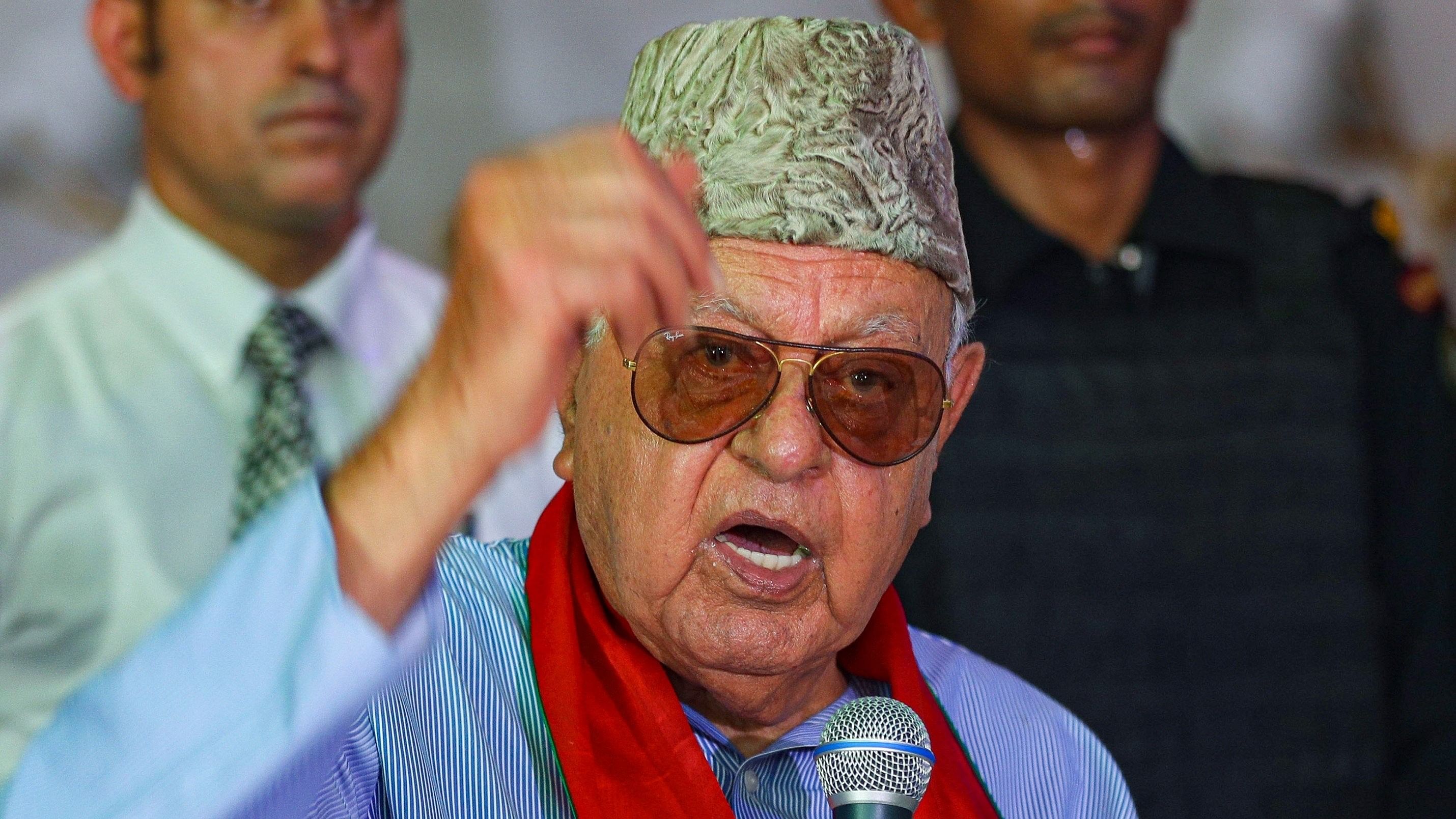
National Conference president Farooq Abdullah.
Credit: PTI File Photo
Srinagar: National Conference (NC) president and former Chief Minister Farooq Abdullah Saturday firmly dismissed any prospects of a post-poll alliance with the Bharatiya Janata Party (BJP) for government formation in Jammu and Kashmir. He emphasized that the NC's electoral support reflects a strong vote against the BJP.
“We cannot go with the BJP. The votes we received are against them. The difficulties they imposed on Muslims, including the demolition of shops, homes, mosques, and schools, make it clear that any alliance is out of the question,” Abdullah said in an interview with PTI.
“If the BJP believes they can form the government, they are living in a cuckoo's world.”
His comments come amid speculation that the NC might be considering a coalition with the BJP, which Abdullah vehemently denies.
Political analysts suggest that an alliance is unlikely, particularly given Prime Minister Narendra Modi and Union Home Minister Amit Shah's aggressive campaign rhetoric aimed at marginalizing “dynastic”parties like the NC, Congress, and Peoples Democratic Party (PDP).
The BJP leaders have consistently blamed these parties for the region's long standing issues.
Asked if Baramulla MP and AIP chief Engineer Rashid, who is on bail, was a factor in the assembly polls, flamboyant Abdullah said he does not see any factor. “Whoever stands with them (BJP), they will be finished,” the NC chief said.
The BJP is expected to win a majority of seats in Jammu, the Hindu heartland of J&K, but is unlikely to make any major gains from its 2014 assembly election tally of 25 seats. Speculations are also rife that the INDIA bloc – NC and Congress - could fall short of getting a majority in the house of 90 members which will force it to look for allies.
The NC chief also said he doesn’t believe in exit polls, which would come later in the day. "I do not believe in exit polls. I have never believed in them, and I will never,” he said.
The results of the three-phase Jammu and Kashmir assembly elections, which concluded on October 1, are set to be announced on October 8, with the political landscape of the region hanging in the balance.